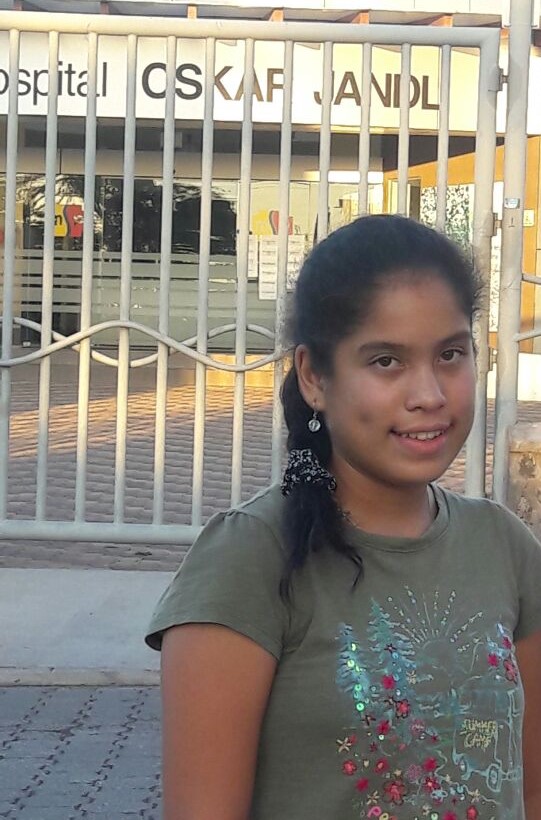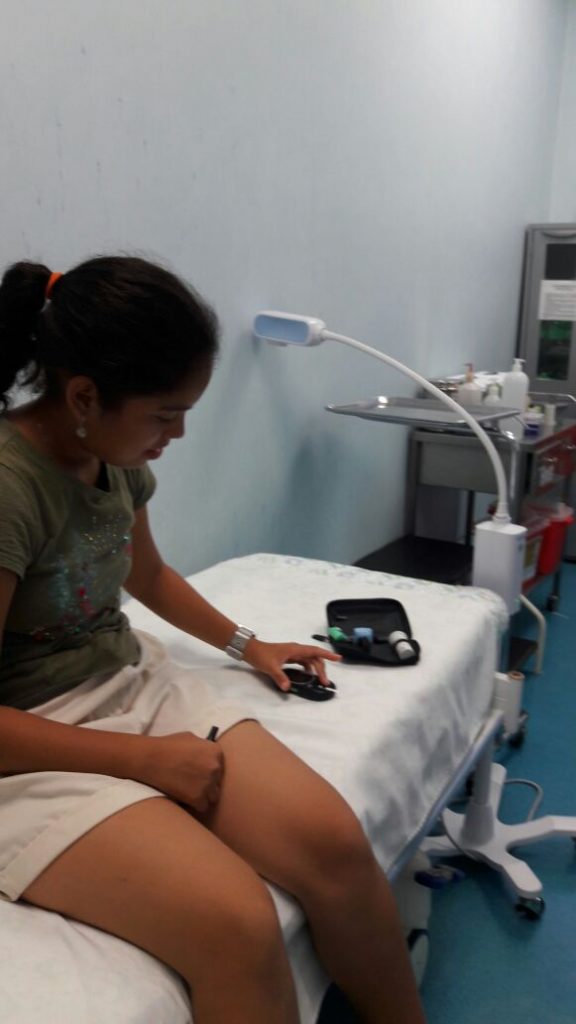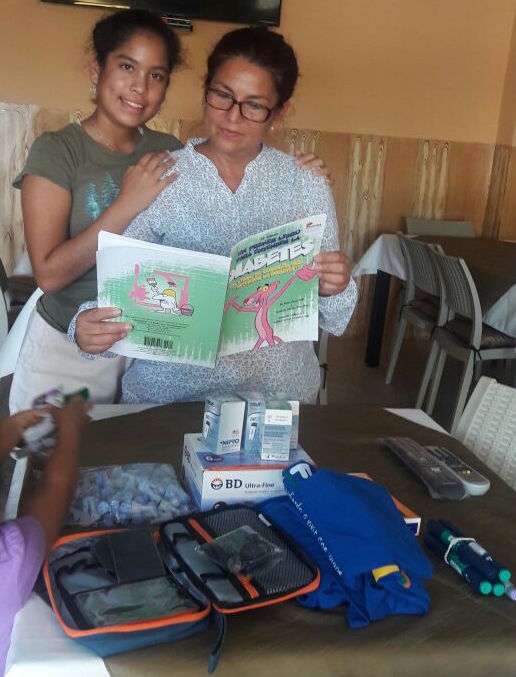Our colleague, Aracely Basurto, from FUVIDA diabetes center in Guayaquil, Ecuador, was contacted via Facebook by a young girl called Darlenis, seeking advice. Darlenis is the only young person with T1D on San Cristobal Island, in the Galapagos Archipelago, so has very little support regarding her diabetes management.
There are no specialist doctors which means that Darlenis must travel to Guayaquil in Ecuador for annual appointments. This is very expensive for the family.
Aracely says “Darlenis does not have test strips for glucose control, so every morning, noon and night she has to walk four blocks to the health center to check her blood glucose, returns home, and injects her insulin, prescribed by the doctor.”
These doses of insulin are fixed, and can only be changed by the doctor, so she must take the same dose which allows no flexibility for what she eats and the exercise she does.
On one occasion, Darlenis woke up feeling ill. Her father took her to the Health Centre, however, they had no test strips. Darlenis went home and drank some juice but felt no better so they had to travel to another island, Santa Cruz, two hours away.
There was some delay at the health center because a doctor had to order the blood glucose to be checked. By this time Darlenis’s father was frantic. Eventually she was allowed to check her blood glucose. A severe hypo was thankfully avoided.
This illustrates how the complex Darlenis’s situation is and the difficulties she and her family face.
The staff at FUVIDA have provided testing equipment from Life for a Child, and have taught Darlenis and her family food label reading so that she can adjust her insulin according to what she eats and her exercise. Acracely: “She learned that by making a proper count she can eat the food she wants and so far had been told
that it was forbidden.”
Aracely adds: ‘There are many cases like Darlenis. Children are exposed to a health system that does not accept them responsibly, and unfortunately, with this poor control, life is shortened and the chances of survival are reduced by half.’
You can help young people like Darlenis access the insulin and supplies they need by donating just $1 a day to the Life for a Child program.


